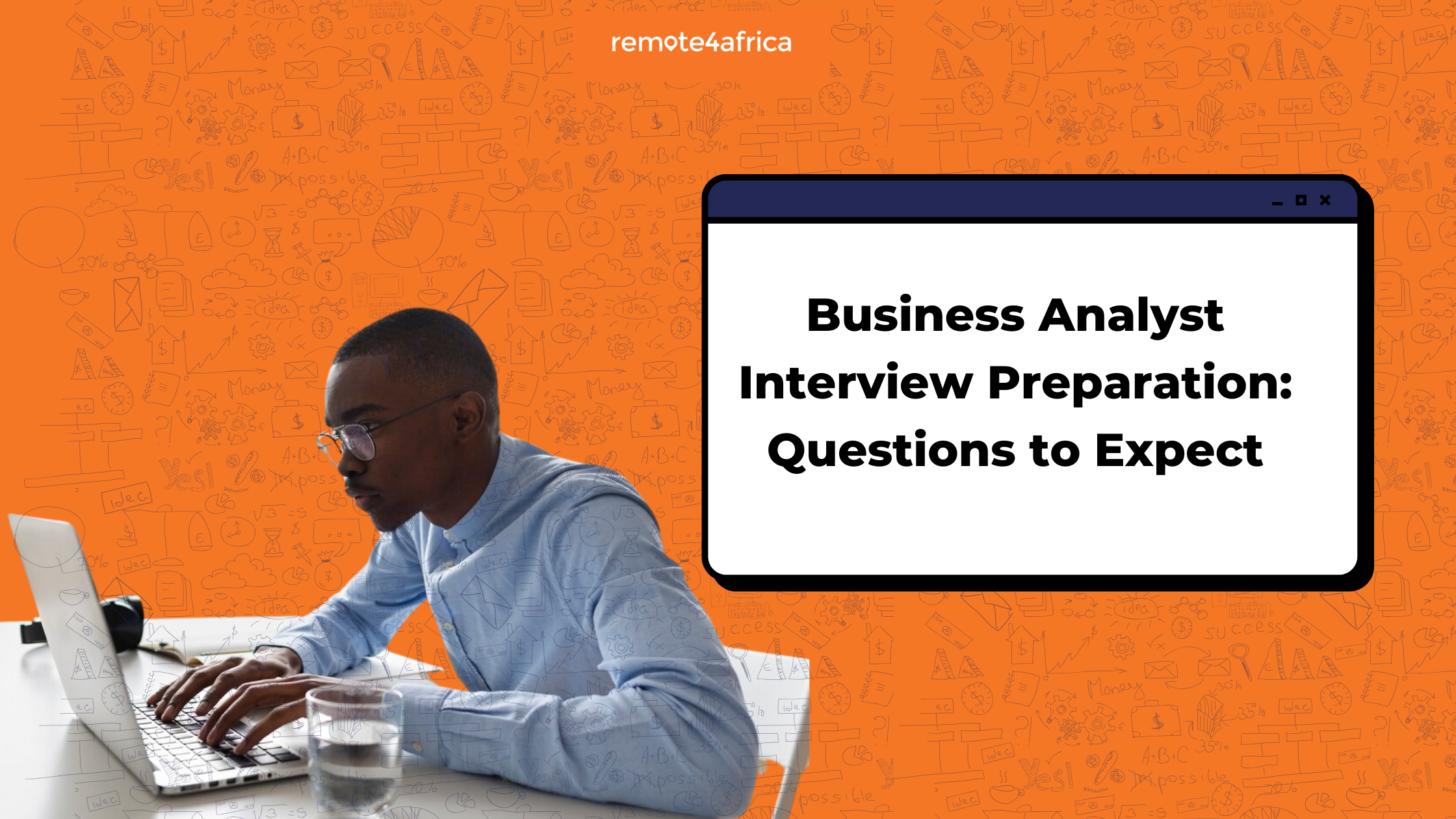Business Analyst Interview Preparation: Questions to Expect
A business analyst is the bridge between stakeholders, ensuring business requirements are understood and implemented.

Are you a professional business analyst or a newbie? It is important to prepare for the interview in advance, as the competition for this role is high. Your unique capabilities are the best way to impress your interviewer and prove your expertise.
The role of a business analyst is to assess an organization's needs and identify improvement opportunities. A business analyst is the bridge between stakeholders, ensuring business requirements are understood and implemented.
In this article, I am going to share 10 questions to expect in an interview for the position of a business analyst and tips to answer these questions successfully.
Explore business and data analysis remote jobs
10 Questions to Expect in an Interview for the Role of Business Analyst.
- Tell us about yourself.
This is a common first question; keep your response brief and direct. A professional and direct answer is what is expected from you. Your interview would like to know your career journey, key experiences, and skills in business analysis.
- What is the role of a business analyst in a project?
This is a seemingly simple question, but it is for the interviewer to know if you are knowledgeable about the role for which you are being interviewed. Naturally, discuss the role of a business analyst using key terms. Also, ensure to highlight your skills in this regard as well.
- What are the core competencies of a business analyst?
A business analyst must have exceptional communication, negotiation, analytical thinking, problem-solving, and decision-making skills. A business analyst should have industry knowledge, business process management skills, and technical proficiency.
- Can you walk us through a challenging project you worked on?
Talk about a project that presented significant challenges and how you navigated these challenges. State your role in using your problem-solving skills to provide solutions to these challenges.
- What techniques do you use for requirement gathering?
Share the requirements gathering techniques that you are skilled in and express why you prefer the techniques you use and how efficient they are in using them.
- How do you prioritize tasks in a project?
Prioritization is important in business analysis. Discuss how you do this by shedding light on the tools, e.g., MoSCoW or Eisenhower matrix, you use and how efficient these tools are.
- Describe a time when you had to convince a stakeholder to change their mind.
Share an example where you convinced a client by using data-informed arguments and communication to sway your stakeholder’s opinion and the positive outcome of the decision.
- What tools and software are you proficient in?
Share a list of the tools, such as Microsoft Excel, SQL, Tableau, Power BI, or any project management software, that you are proficient in as they relate to your role.
- How do you ensure that the final product meets business requirements?
Share techniques such as user acceptance testing (UAT), peer reviews, and continuous feedback are used to validate and verify business requirements. These techniques ensure that the end product aligns with the business's needs.
- Where do you see yourself in five years?
Express professionally how you are looking to grow within the company, your career aspirations, and how being a business analyst fits into them. For example, you could add how you hope to become a team leader for a business analyst team.
Conclusion
The role of a business analyst is quite important for the growth of an organization. An organization would only go for a business analyst that they could trust with their projects. The interview is your chance to impress your recruiter with your skills and experience. Practice your responses and prepare beforehand to ensure that you exude the right amount of confidence and professionalism.
